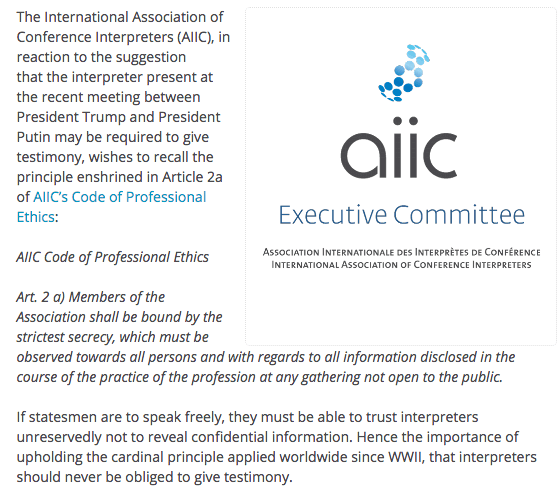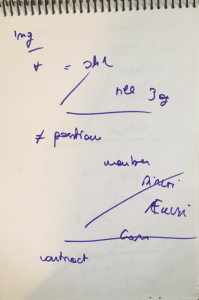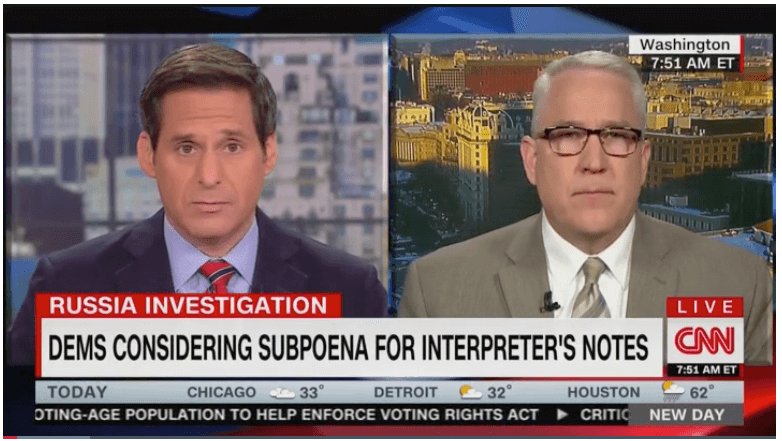Lately, interpreters have been all but invisible on the news, especially thanks to US President, Donald Trump. The latest case you may have already heard of regards the secret bilateral meeting between Trump and Putin, with the help of an interpreter. Due to its secrecy, in the US there is currently a significant debate on whether the interpreter and/or her notes should be subpoenaed to shed light on what was said during the event.
We would like to share today our merely-professional standpoint on the matter providing 3 reasons why the interpreter should not be subpoenaed.
1. It is against interpreters’ code of ethics to breach confidentiality
The main pillar of interpreters’ work is the utmost confidentiality of everything that is said during the interpreting service. It is not a coincidence that every interpreting association includes it in its code of ethics. This allows every person involved, whether it is a business man during a commercial talk or a politician attending a high-level bilateral meeting as in this case, to speak freely. Confidentiality is key also in other professions, such as for lawyers, priests, journalists, and many more.
Interpreters are there just to let the communication flow, not to be used as spies or transcribers nor to judge. They should never be asked to breach confidentiality or, as our colleague Barry Olsen rightly states in an interview with the CNN (see below), there will be serious consequences in the long run for diplomacy and trust in interpreters in general.
Below follows the statement issued by AIIC (International Association of Conference Interpreters) on this issue.

2. The interpreter won’t be a reliable witness anyway

Even if neglecting the consequences of breaching confidentiality, the interpreter won’t be a reliable witness anyway. That is because we interpreters are terrible at remembering with enough precision what we interpreted even shortly before. When we work both consecutively (as in bilateral meetings) and simultaneously (from a booth, talking at the same time as the speaker) we store information in our short-term memory. Once we have interpreted a piece of information, it is quickly and efficiently deleted to make room for more.
3. Subpoenaing the interpreter’s notes will be completely useless

Example of my interpreting notes, with a good deal of “doctor-style” handwriting.
In order to be able to accurately convey what has been said during a bilateral meeting of this sort we interpreters take notes, which are more similar to hieroglyphics than what people might understand when hearing the term “notes”.
As you can understand by looking at the picture of my interpreting notes, not only will it be impossible for whoever subpoenas those notes to decipher them, but the interpreter won’t be able to remember what they meant either. In my case, after months, I have no clue of even which assignment they were taken for.
As a matter of fact, interpreting notes are not to be confused with shorthand or any other standardized system to transcribe contents accurately. Rather, they are merely a visual and personally-developed mnemonic help with a very quick expiration time (about 15-30 minutes).
Completely in line with our considerations is the very exhaustive contribution of our colleague, Barry Olsen, who was interviewed by the CNN on this matter. To watch the interview, click on the image below and then scroll down to watch the last video of the page. Enjoy it!
If you want to share your opinion on the matter, add further arguments in favour or against subpoenaing the interpreter, we’ll be glad to read your comments. Thanks in advance!







